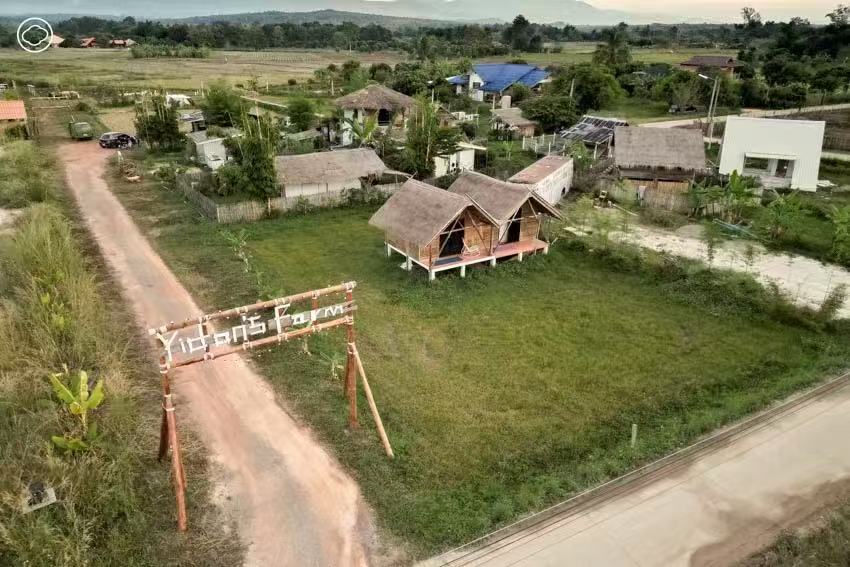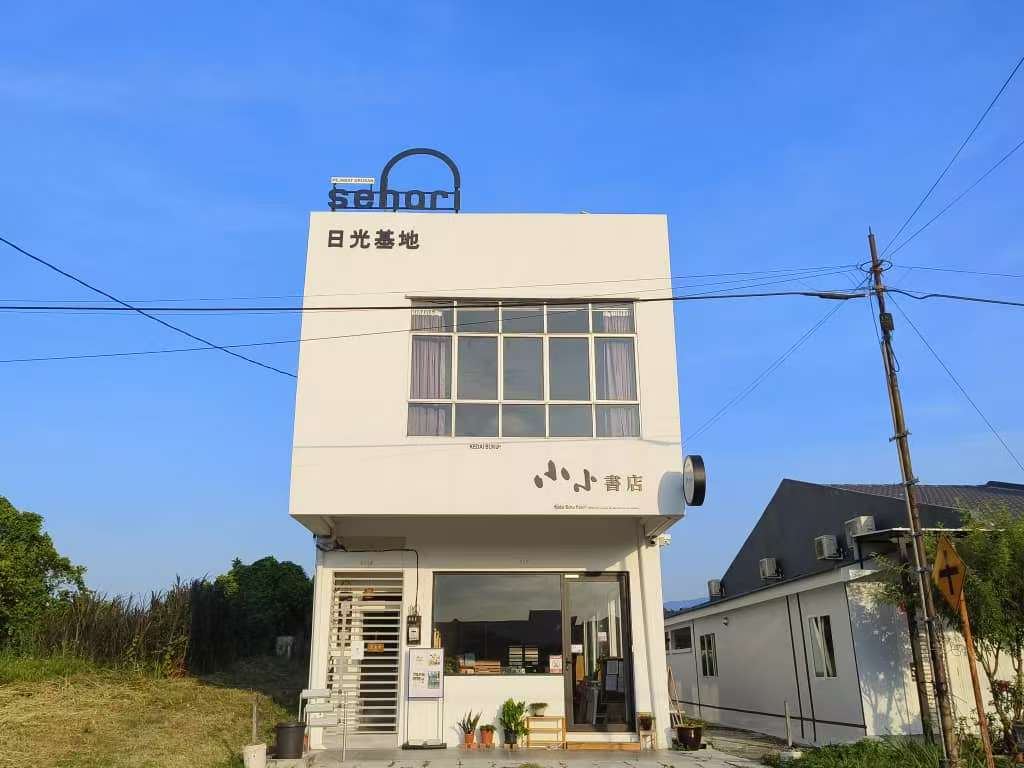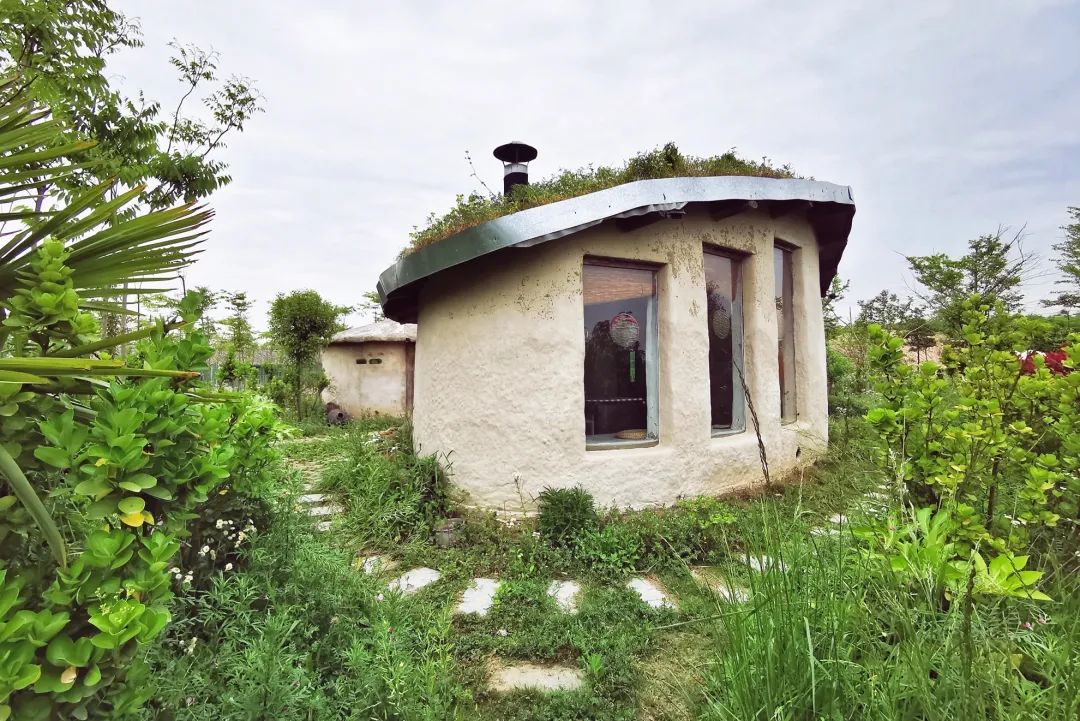“家园计划AnotherLand”是中国大陆唯一针对生态村(共识社区)进行探索、集成、服务的非营利性组织.
Project Anotherland is the only nonprofit organization in mainland China dedicated for the exploration, integration and service of eco-villages and eco-communities.
“家园计划”是什么?
“家园AnotherLand”是对人类文明发展的反省,是对如何延续人类文明的探讨。
“家园AnotherLand”并不是苦行僧对人类自身极限的试炼,而是研究如何让人类生活的更加舒适健康。
“家园AnotherLand”不是反城市化,而是让人可以在城市与“家园”之间自由选择。
“家园AnotherLand”不反对科技,而是探讨科技与自然的融合。
……
What is “AnotherLand”?
"AnotherLand" is a reflection of human civilization development; "homeland" is the discussion about how to continue human civilization.
"AnotherLand" is not an ascetic testing his own extreme limits, but trying to study how to make human's life to be healthier and more comfortable.
"AnotherLand" is not against urbanization, but giving people the freedom to choose between cities and anotherland.
"AnotherLand" is not against technology, but discussing the integration of nature and technology.
……
家园计划各地工作站简介
Introduction to workstations of Project Anotherland
| 家园计划(Anotherland)昆明工作站 |
壹里花园所在的区域曾经有一片湿地,但后来变成了水泥硬化的地面和住宅,这为生活带来实用性的同时也丧失了这个区域原有的生态特征。考虑到这里的干燥气候以及生物多样性因素,因此花园中特别建造了一个小型湿地来收集雨水以及处理日常生活排放的废水;同时湿地中种植了不同的蜂类、蝶类传粉的本地植物,湿地的水体部分也为昆虫和两栖动物提供了繁衍和栖息的生存空间,这不仅使无生命的硬化土地复归自然,也为这个区域的生态多样性带来了更多的可能性... 现在壹里花园是一群人共同实践可持续生活的Co-Living小社区,在这里我们用Pemaculture的世界观和设计原则进行着一系列自给自足的生活实践,如果你对园艺、自然建筑景观、永续生活等领域感兴趣,欢迎成为我们的驻留伙伴。 Kunming Workstation: One-mile Garden There used to be a wetland in the area where One-mile Garden is located, but it later became a cement-hardened ground, which brought practicality to life but at the cost of losing the original ecological characteristics of this area. Considering the dry climate and biodiversity factors here, a small wetland is specially built in the garden to collect rainwater and treat wastewater. At the same time, different local nectar source plants are planted in the wetland. The water body of the wetland also provides habitat for insects and amphibians, which makes the lifeless hardened ground return to nature, and also increases ecological diversity of this region... Now One-mile Garden is a small Co-Living community where a group of people practice sustainable living together. Here we use Pemaculture worldview and design principles to carry out a series of self-sufficient living practices. We welcome friends who are interested in gardening, natural architectural landscape, sustainable living and other related fields. |
| 家园计划(Anotherland)福州工作站 |
 |
家园计划福州工作站的前身是南部生活共识社区实验。 “南部生活”是一项共识社区实验,由“家园计划”(AnotherLand)与正荣公益基金会于2015年联合发起于福建福州闽侯关中村。“南部生活”也是“家园计划”的第二阶段,其第一阶段“自给自足实验”由唐冠华和邢振于2009年在青岛崂山发起。 “南部生活”欢迎任何创见性的思想(包括但不限于生态建造、可持续能源、自然耕种、环保日用品、组织决策方法等研究实践)到这里演练、模拟、试错,以期从这里走出多种多样的共识社区,参与到全球多元化的进程中。在“南部生活”共识社区实验,大家致力于用数十年的时间在中国大陆探索出一种没有地理、特权、政策、景观、经济、学历等背景的,以共同社会使命或生活方式为基础组成各种类型社区的范例。 2015年10月,正荣公益基金会租用福州闽侯关中村500亩土地用于“南部生活”共识社区实验的开展。2018年,社区成员得知该片土地属于一类耕地,法律性质上无法支持社区实验所需的构筑物和生活设施的建造,几经多方协商未果,被迫停止土地上的建造和改造。2022年3月,正荣公益基金会在资金面临暂时性困难的情况下,经协商,停止支付南部生活共识社区实验所在的500亩土地租金。村委会随即将土地收回村集体。 社区居民大王、吴吉南、小骏和女儿吴有,暂时留在村中继续生活。2022年6月,正荣公益基金会与关中村委解约后,山中的构筑物已被村民拆掉。一年来,经过反复沟通,社区居民大王与一户村民单独签约,重新以个人身份租下一片耕地,作为自然农耕实践之用,并管理着栖地自然学校。 Fuzhou Workstation The predecessor of the Fuzhou workstation is the Southern Life intentional community experiment. "Southern Life" is a intentional community experiment, jointly initiated by "Project Anotherland" and Zhengrong Foundation in 2015 at Guanzhong Village of Fuzhou. "Southern Life" is also the second phase of the "Project Anotherland". The first phase was the "Self-sufficiency Experiment" which was initiated by Tang Guanhua and Xing Zhen in Laoshan, Qingdao in 2009. "Southern Life" welcomes any creative ideas (including but not limited to ecological restoration, renewable energy, natural farming, environmental-friendly daily necessities, organizational decision-making methods, etc.) to come here to practice, simulate and experiment, in order to incubate diversified intentional communities to participate in the process of global diversity. In the "Southern Life" experiment, we are committed to exploring In October 2015, Zhengrong Foundation rented 500 mu of land in Guanzhong Village, Fuzhou, for the community experiment. In 2018, the land was classified as agricultural land, and therefore could not legally support the construction of structures and living facilities. After several negotiations, they were forced to stop the construction work. In March 2022, Zhengrong foundation, facing temporary difficulties in fundings, stopped paying the rent of the land, after which the village committee immediately reclaimed the land to the village collective. Dawang, the couple Wu Jinan, Xiao Jun and their daughter Wu You, continued to stay in the village. In June 2022, after Zhengrong Foundation and Guanzhong Village Committee broke the contract, the structures in the mountain were demolished by the villagers. Over the past year, after repeated communication, the community resident Dawang signed a private contract with a villager to rent a piece of farmland for natural farming practice. He is also managing a natural school. |
| 家园计划(Anotherland)大理工作站/大理自给自足实验室 |
自给自足实验室网络 (CSSLAB)隶属于家园计划 (Project Another-Land),由唐冠华先生组织创建于2009年,是中国境内首个研究家庭生活必需品制造工艺的民间公益机构,实验室空间分布在世界各地。 Dali Self-sufficiency Lab |
| 家园计划(Anotherland)泰国清迈工作站 |
 |
小熊农场(Yidan‘s Farm)位于泰国清迈市以北的清道县,它不仅仅只是一个农场,更是数字游民、流浪动物们的家,一个蓬勃发展的共同生活社区。 农场由小熊于2021年创立,种植水稻、各种蔬菜、香草和树木。现在有四间客房,使用竹子和再生木材等绿色和可持续材料建造而成。 通过多元化的活动和知识分享,我们与土地和当地社区都建立了深厚的关系,形成了土地界限以外的深厚关系。 Chiang Mai Workstation Little Bear Farm (Yidan's Farm) is located in Chiang Dao County, north of Chiang Mai, Thailand. It is only a farm and a home for digital nomads and stray animals, and it is a thriving co-living community. The farm was planted by Little Bear in 2021 and grows rice, various vegetables, herbs and trees. There are now four guest rooms, built using green and sustainable materials such as bamboo and reclaimed wood. Through activities of faith and sharing of knowledge, we build an equal relationship with both the land and the local community, forming the ultimate relationship beyond the boundaries of the land. |
| 家园计划(Anotherland)马来西亚怡保工作站 |
 |
PLab地方创生实验室的P,代表的是公司所在地怡保所属的州属──霹雳(Perak),P同时也代表地方创生所指的: 地(Place) 产(Produce)人(People) 实验室意指P Lab在怡保和马来西亚各地进行的地方创生相关实验,透过跟当地产业、官方、学校、社团等串联,协助当地社区、产业等打造地方的希望工程。 P Lab 是一家由马来西亚和台湾合资的平台公司,旨在实践地方创生理念和方法,进行场域活化,振兴地方产业,打造地方品牌,同时将透过在台湾南投竹山的姐妹公司——小镇文创股份有限公司,连动台湾、中国、日本等地方创生、文创团队,让马来西亚有潜力的地方品牌有机会进军其他市场;同时也协助让想要跟马来西亚地方创生、文创、旅游等相关领域进行交流或合作的海外公司、团体作串联服务。 P Lab 设有名为“日光基地”的文化交流空间,是一间配备有驻留创作、沙龙分享、电影放映、书店等功能的文化活动综合体。欢迎来自世界各地对可持续设计、共识社区、地方创生、社区营造感兴趣的朋友来交流。 Ipoh Workstation The P in PLab stands for the state of Perak, where the company is located. It also stands for what local revitalization means: Place, Produce, People The laboratory refers to the local revitalization experiments conducted by P Lab in Ipoh and other parts of Malaysia. By connecting with local industries, officials, schools, and associations, it helps local communities and industries create local hope projects. P Lab is a platform company jointly established by Malaysia and Taiwan. It aims to implement the concept and method of local creation, revitalize the site, revitalize local industries, and build local brands. At the same time, it will be established through its sister company, Xiao Zhen Cultural and Creative Co., Ltd. links local creative and cultural teams in Taiwan, China, Japan and other countries, allowing potential local brands in Malaysia to have the opportunity to enter other markets; at the same time, it also helps those who want to cooperate with local creative and cultural teams in Malaysia. We provide linkage services for overseas companies and groups that want to exchange or cooperate in related fields such as tourism. |
| 家园计划(Anotherland)江苏工作站 |
 |
原宿自然环保农场创办于2015年,位于江苏东台部沿海。农场借鉴朴门永续理念设计并建设,专注于自然建筑、自然教育、自然农耕的实践和推广。 农场占地160亩,其中包括70亩左右的野生水塘,与外界水源断隔,主要是雨水蓄水。池塘内野生水鸟野鸭和芦苇丛生,各种野生物种和养分丰富,是稻田灌溉的水源。 2023年从自然农场向共识社区转型。 |
YuanSu Natural Eco Farm was established in 2015 in Dongtai, Jiangsu, along the eastern coast of China. Designed and built based on permaculture principles, the farm is dedicated to natural building, nature-based education, and regenerative farming. Covering 160 mu (about 10.7 hectares), the farm includes around 70 mu of wild ponds, which are rainwater-fed and disconnected from external water sources. These ponds, rich in biodiversity, are home to wild waterfowl, ducks, and reeds, while also providing nutrient-rich water for irrigating the rice fields. In 2023, the farm evolved from a natural farming project into an intentional community, embracing shared values and collaborative living. |
“共识社区”是什么?
共识社区(Intentional Communities)是人类群居生活的一种形式。
唐冠华将共识社区这一概念进行了定义,将欧洲的理念村侧重于共识决策的特点修改为共识(共同理念)为主导的观念先行的广泛化概念,扩充其概括性,使其包含了例如:生态村、理念村、生态社区、可持续社区、艺术家社区、基督教社区、禅修社区、素食社区等概念。
特指有共识的某类群体自发组成的独立生活社区。
在21世纪初期,由中国当代艺术家唐冠华提出,并在大陆进行推广普及。
详细介绍可下载《共识社区类型分析》一文。
定义
特指有共识的某类群体自发组成的独立生活社区。
根据兴趣爱好、宗教信仰、饮食习惯等理念类聚的无国籍人类社群。
例如艺术家社区、基督教社区、禅修社区、素食社区等。
联络信息CONTACT
欢迎全球的伙伴申请各个工作站的访问和驻留
微信公众号(WeChat): |
 |
电子邮箱(E-mail): |
anotherlandorg@gmail.com guanhua75@163.com |
| Facebook: | https://www.facebook.com/projectanotherland/ |
| Linktree: | https://linktr.ee/AnotherLand |